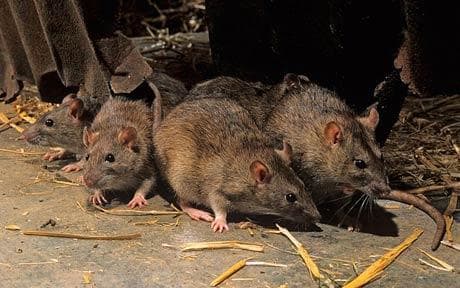Rat Information
We are a commercial service provider, therefore we produce content with informational purposes only.
This site does not offer medical advice.
How to keep Rats & mice out of your home
“ Where pest control is concerned, prevention is always better than cure.”
No one wants to share their home with vermin, especially during winter when they can get up to all sorts of mischief, so how do you stop them getting in?
There’s nothing worse than just getting into bed, snuggling down and then hearing the insistent patter of tiny, scratchy feet racing around in the ceiling above you.
However, that those scratchy feet might belong to rats, rather than their less portly cousins, mice.
Rodents are a common problem in households during the winter months, as they are attracted by the abundance of food, warmth and shelter on offer.
Given the choice, they will go for carbohydrate and sugar-rich foods that deliver the most energy, but they are gluttons, so will eat almost anything. With this being the case, storing food appropriately is the first step in keeping them at bay.
So, now’s the time to put a stop to vermin making your home their home too.
Top tips for vermin-proofing your home
- Keep foods in sealed containers
- Make sure outdoor bins have secure lids
- Keep hiding places to a minimum (no clutter!)
- Clear up pet food and bird feed when not in use
- Compost bin should be fastened tightly, or food waste kept to a minimum
- Get a cat – although, if it’s well fed it won’t need to supplement its diet with live vermin…
- Fit bristle or brush strips to the bottoms of exterior doors
- Fill holes in exterior walls, roofing cavities and eaves
- Disgustingly, rats have been caught swimming up drains, round u-bends and into toilets – so put the lid down!
- Fix metal grates to drains, air bricks and vents to keep them covered
- Seal any holes around pipe work with wire wool or professional sealant
- Mice and rodents are under constant threat from predators and so will only feel safe if they have somewhere to hide. Where possible, objects should be moved away from the walls, so that you can easily check what’s behind them
- Cut back bushes, trees, overhanging branches and grass to limit nesting and shelter possibilities for mice
- Signs you have vermin – meaning it may be time to bring in Barming Pest Control Services
Aside from scratching, scurrying sounds in the ceiling and under floorboards.
We advise looking out for:
Droppings (dark in colour and the size and shape of grains of rice)
Footprints (to assess whether tracks are fresh, sprinkle the area with flour, if overnight the flour has been disturbed, it could very well be rats)
Rub marks (rats have poor eyesight, so bump up against walls and skirting boards for navigational purposes, you’ll be able to spot the grime they leave behind)
Strong smell of urine
Mice build nests in small, cosy cavities, check behind fridges and under floorboards for piles of soft shredded materials
“If you have a problem with rodents then it’s important to catch it early and consult
Barming Pest Control Services to deal with the infestation before the population size grows.
How to contact us
You can always fill out the quote form. Alternatively, there are plenty of other options below...
By Phone
The old fashioned way is still the best!
Please give us a call and let one of our friendly, knowledgeable staff discuss how we can help
By Email
Of course, if you want to email us instead, you can either complete the contact form or email us directly
info@barmingpestcontrol.co.uk
Request a Free Quote
Before you go down the DIY route,
why not give us a call to see how we can help?
Or submit your request and we'll get back to you soon.
You have nothing to lose!
Pest Control in and around Maidstone
We have a team of highly trained specialists who have extensive knowledge and experience in dealing with all types of pest problems. We know how harmful, destructive and distressing pests can be and we have proven control solutions to get rid of any pest problem. From mice to moths to bedbugs to beetles, fleas to flies and anything and everything in between, we can solve your problem. So, whether it’s in a residential, commercial or agricultural setting we will work to ensure you remain pest free.
RSPH Level 2 Technicians.
Qualified in Environmental Health Regulations.
Qualified in Health and Safety Regulations.
CRB Checked.
7am - 7pm - 7 days a week.
Fast, local service.
Competitive prices.
Prompt and Reliable
Qualified in Environmental Health Regulations.
Qualified in Health and Safety Regulations.
CRB Checked.
7am - 7pm - 7 days a week.
Fast, local service.
Competitive prices.
Prompt and Reliable




